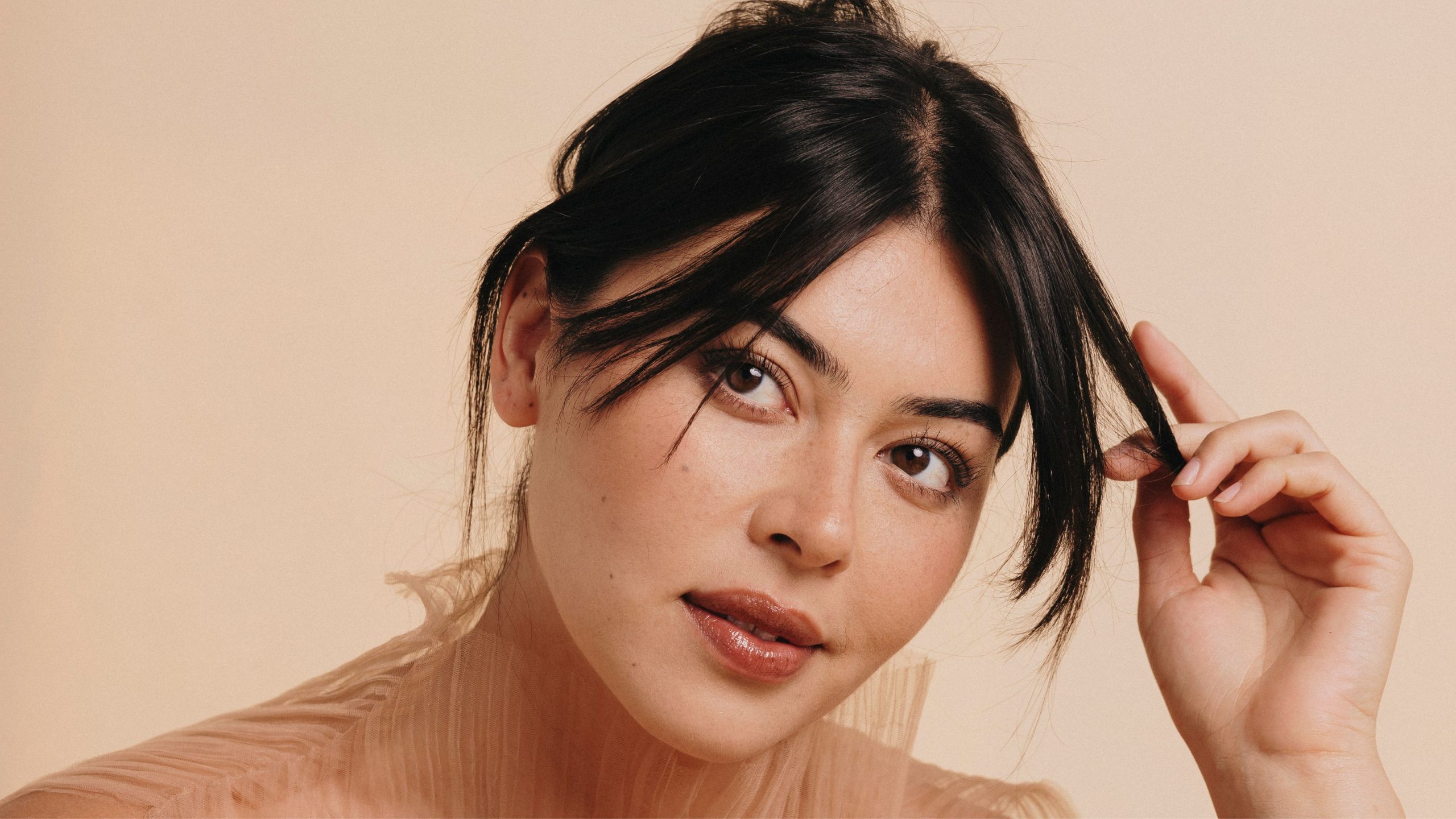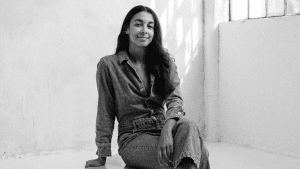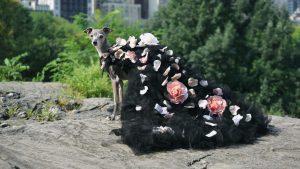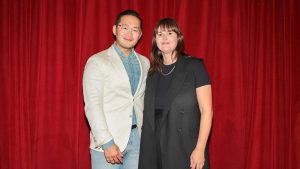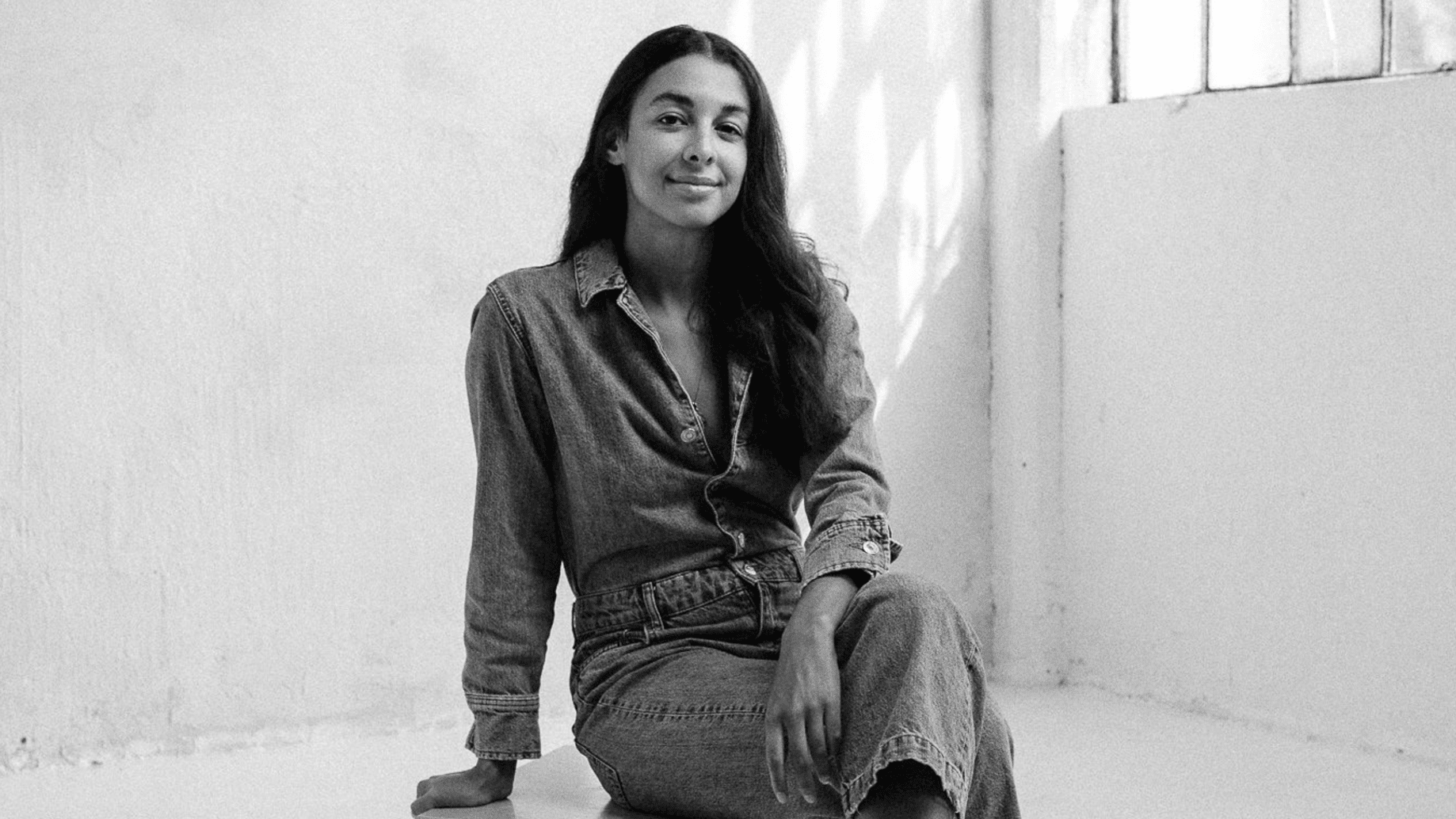Amidst the ever-evolving landscape of the fashion industry, where institutionalized norms have often stifled progress and diversity, a crescendo of voices is challenging the status quo. At the helm of this movement stands Lauren Chan, a powerful advocate for inclusivity and genuine representation. Her journey has been multifaceted—from her tenure as a magazine editor, where she championed diverse, size-inclusive coverage; to her role as a plus-size model; to co-founding her trailblazing brand, Henning. But it’s her unwavering commitment to reshaping the larger narrative around inclusivity and representation that truly defines her impact.
The fashion and media industries, historically bound by restrictive definitions of beauty and body image, have slowly started to recognize the need for change, for more inclusive and diverse representation. Chan, a Brantford, Ontario native living in New York City, embodies this paradigm shift. As the first openly queer plus-size Sports Illustrated Swimsuit rookie, she personifies the evolving standards of beauty and courageously challenges conventional norms.
Chan embodies the potential for impact that today’s enterprising models have on shaping culture. They are not “just” models but multi-faceted entrepreneurs who champion a value set rooted in inclusivity, community, and self-empowered agency. Her story is a testament to progress, resilience, and the profound impact one individual can have on an entire industry.
What is the most cherished memory you have of feeling beautiful?
Lauren Chan: Well, I’ve been feeling really beautiful lately. Over the past year-and-a-half, I have been going through a personal journey of coming out and it has really made me feel like myself so much more. It has made me feel beautiful in that it has helped me melt away a lot of the things I thought I should be or feel like or look like. Being out, being gay, and being in the female gaze really makes me feel comfortable. That’s where the beauty lies.
As someone who has worked in multiple areas of the fashion industry, from being a magazine editor at Glamour to a fashion entrepreneur to model, how do you define beauty? Also, how has that definition changed for you over the years?
Lauren Chan: It’s a shame that beauty is the same word for a bunch of different things. There’s one type of beauty—let’s call it apples—that is the industry, right? I work within that industry and am very involved in it. Then there’s another type of beauty—let’s call it oranges—that is my personal experience of beauty within myself. Unfortunately, I think it’s a disservice to all of our mental health that they are called the same thing. To me, personal beauty is a thing of comfort and celebration and expression and peace. I feel that way now in my thirties after having spent so much time combating who I am and what I look like to fit into the rigidity of what our “apple” beauty is. I am at peace and calm, and I’m luxuriating in my differences.
What do you think is the most interesting conversation we’re having today about what it means to be beautiful in the industry?
Lauren Chan: I think the most interesting thing that we’re talking about in terms of beauty is how it equates to value. In my part of the industry where I’m a plus-size model, it really used to be monolithic and homogenous. There was one type of plus-size ideal at large, and there was also one type of beauty ideal. I feel that there’s so much diversity in who and what we celebrate now. It is allowing so much more room for different folks and different perspectives. All of the diversity that that generates is what is moving the industry forward.
You’ve had your work published in outlets like Vogue, Interview, and T magazine, and also worked at Glamour as a Fashion Features editor. What are your biggest takeaways from your career in media that have really helped you in this next leg of your career journey?
Lauren Chan: Definitely that carving out your own niche is the fast lane. I did not think that when I started. I wanted to be like all of the editors that I had seen come before me. I wanted to dress like them, talk like them, do what they did on the weekends, cover what they covered. I certainly did not want to be the big girl in the room. When I walked through the doors at Condé Nast that first day, I [told myself] I’m going to assimilate and I don’t want to be othered. I used that strategy for a while and just didn’t get anywhere. If you act like everyone else, you’re going to get what everyone else gets.
I decided to lean into what made me different. In that context, it was my size. I started writing and talking about it. Most of America is in the same boat as me in terms of size so from there, I really saw everything snowball. I went from writing 20-word captions at the back of the magazine to having a print column, a digital vertical, I was put on national TV shows to talk about inclusive fashion on behalf of the magazine, I got to design a clothing collection as part of the magazine’s collaboration with a retailer called Lane Bryant, and then I went on to start my own business.
I really cannot stress enough how much good has come from celebrating what makes me different from other people.
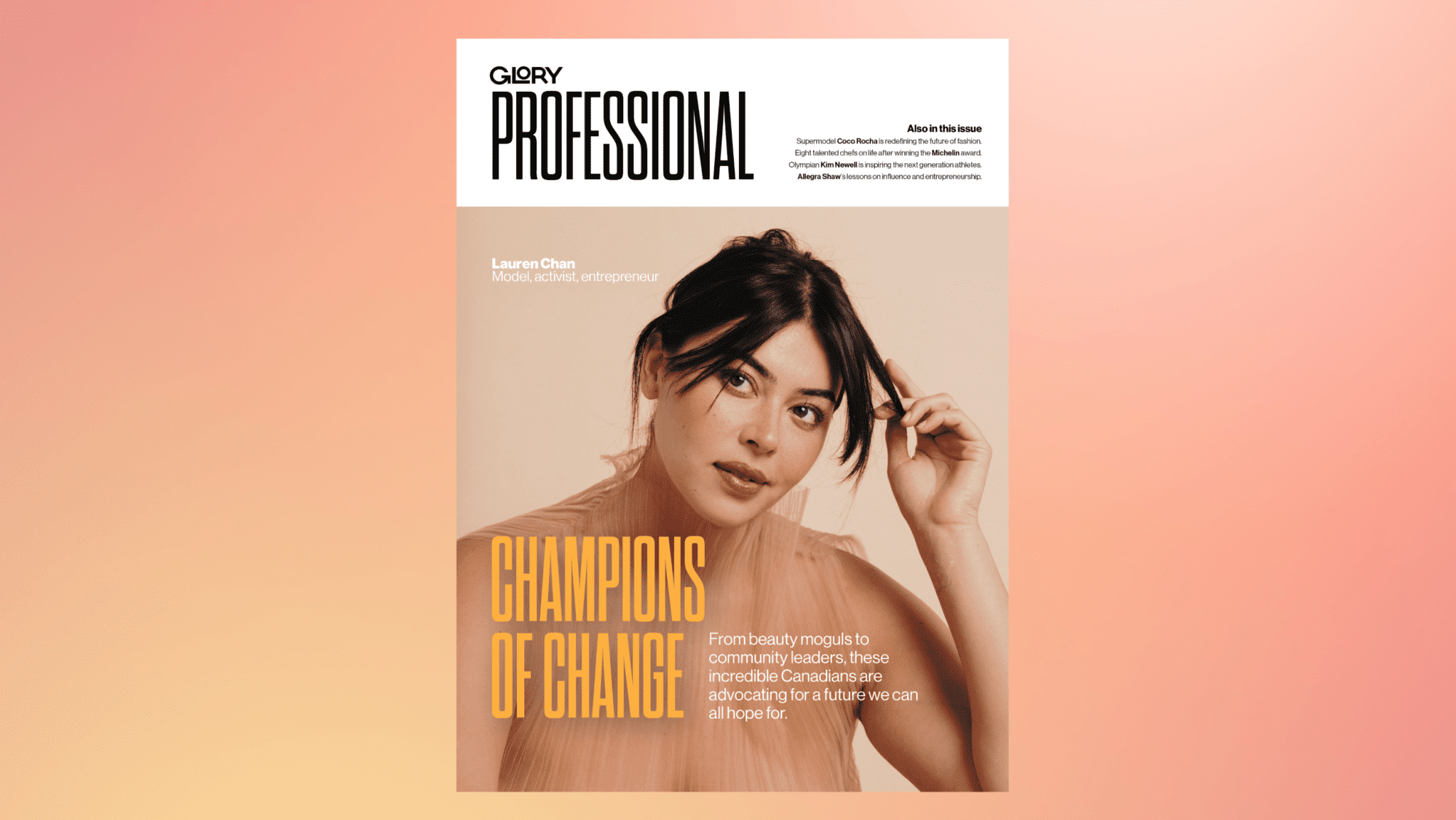

You oversaw the plus-size beat in your role as editor at Glamour. How has the role of clothing in your life changed for you ?
Lauren Chan: At first, clothing in my career was really a thing to hide behind and not call attention to myself with. At the same time, there weren’t a lot of options in my size, which was 14 to 18. Most things were dowdy cuts, terrible patterns, and juvenile bright colours.
I wanted something that I ended up making, which made me feel on par with my peers. During that process, I learned how clothes are made and the reasons why things don’t exist or are made a certain way or priced how they are. That revelation has taken a lot of the power out of clothing.
For example, I learned that factories cut clothing runs in sets of seven for sizing. That’s why clothing stops at large.Then the next set of seven goes up to about size 24, which is where plus-size clothing generally stops. If you wanted to add up to a size 30, which is a very healthy size for an inclusive brand, you actually have to pay to go up another seven sizes. So, financially the table doesn’t make sense and that’s why fashion has always stopped around a size 14. Once I knew that, I stopped feeling so bad for being above a size 14 because it’s not to say that there is some intrinsic value in being below that size, it’s just that brands are either financially lazy or that’s just the way it’s always been done. I learned that lesson and it helped me feel a lot better because I realized the problem is not me or you or anybody in their body. It’s the clothes.
With regards to this particular dialogue, what role does innovation play?
Lauren Chan: It is easier said than done to be innovative when you have an entire machine that you need to overhaul in a lot of ways financially and structurally, with supply chains and getting investors on board. A lot of the problem with industries that affect how we feel about ourselves as people is that they’re run the way they’ve always been run because nobody wants to change anything. Unfortunately, the status quo is not great
You’re a successful model who has had a really quick trajectory. What does it mean to embrace the mindset of a model?
Lauren Chan: I’m energized by this question because often it is positioned as such a frivolous thing to talk about. I fell victim to that for a lot of years and hated being a “model”. I always led with my more traditional, achievement-based roles or personality traits.
I have learned in recent years with a lot of therapy to be thankful for my job as a model because it has given me financial [independence] and the ability to do the things that I really care about, like starting my own business.
It is a comparative industry where you’re basically comparing what you look like to other people, with the added factor of money. It is not good for you. It has really made me be grounded in who I am, what I stand for, what I want, and to worry about myself. And it has also taught me that it’s important to be multifaceted and to embrace the different sides of yourself. If a young model asks me for advice, my number one piece of advice is to have something else going on. You can’t just sit around waiting for other people to give you a job. Learn how to throw ceramics, go work with animals, volunteer with children, go back to school—whatever will make you feel fulfilled otherwise is really important.
That’s really interesting because today, especially because of social media, we’ve been able to see models really embrace this entrepreneurial mindset and have these multifaceted identities.
Lauren Chan: Seeing models take back the power from what is traditionally a woman’s industry made by men is amazing. It speaks volumes about where we are as women in society. It speaks volumes about the dismantling of patriarchal capitalism and all that good stuff. If I were a teenager today and I looked up to the people in the roles that I looked up to then, I feel like my personality would have been more positive earlier. I would have made a lot of different choices and might have arrived at this moment earlier, where I feel proud to be me.
What inspired your initial move into modeling from your previous career?
Lauren Chan: Well, that’s a great question considering that I’m telling you that I hated it [Laughs]. I wanted to be in publishing and I wanted to do it in New York City because it’s the epicenter. I couldn’t get a work visa because I didn’t have enough work to show that what I offered was so extraordinary they had to outsource it to a Canadian.
I thought if my skill was what I looked like, I could technically prove that it was entirely unique and so I went to an open call for the Ford models plus-size division and got signed that day. I really saw it as a throwaway means to an end that made me uncomfortable, insecure, and comparative.
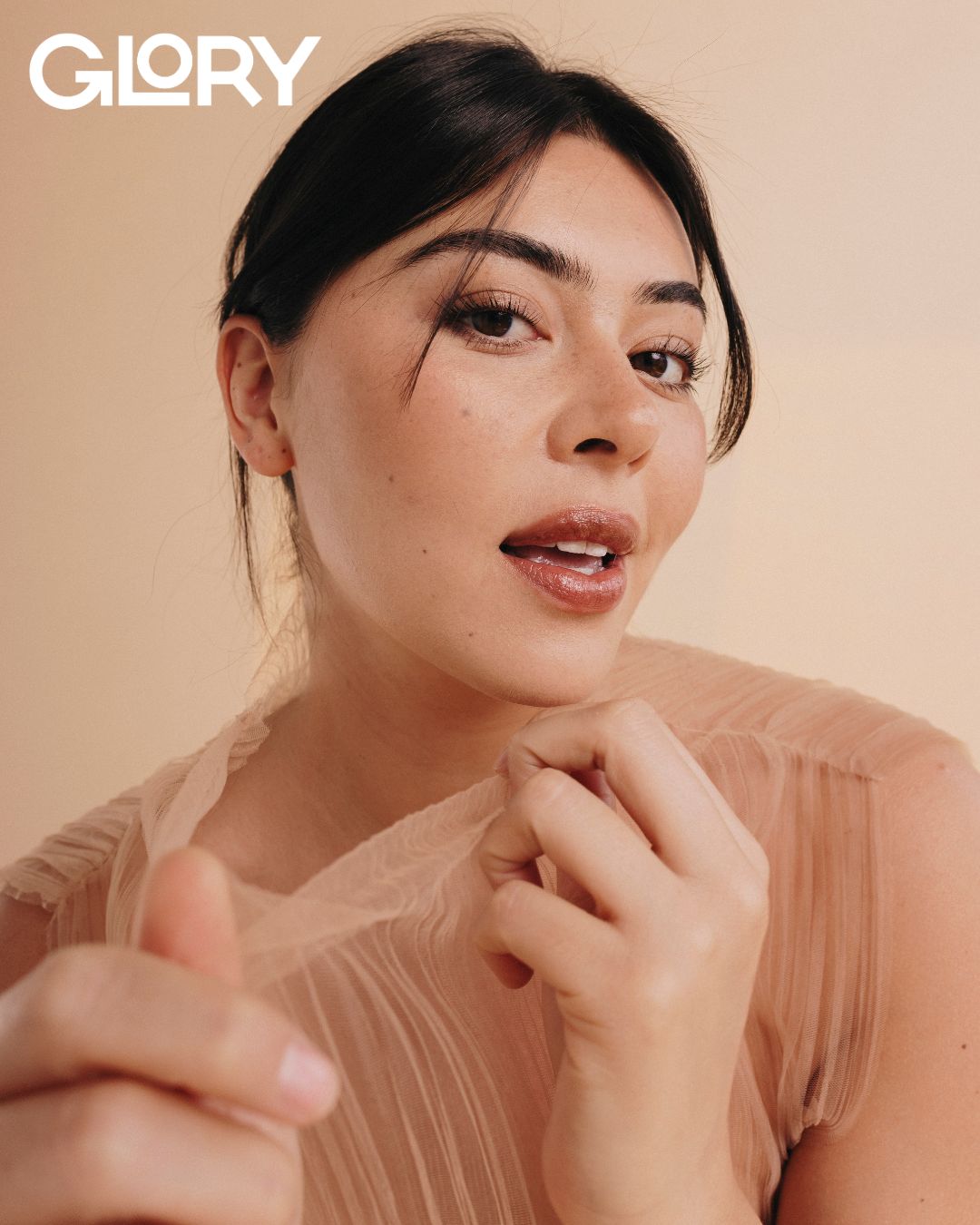

Earlier this year, you became the first openly queer plus-size Sports Illustrated rookie, which is what they call a first-time swimsuit issue model. What did that opportunity mean for you and why did you choose that as a platform to share your message?
Lauren Chan: That question is perfectly put together because they go hand-in-hand. I came out in this year’s Sports Illustrated swimsuit issue. It was the first time I had really talked about it beyond my friends and family. In my casting video, I sat down to do my self tape and felt a calling to share a more personal story about coming out, getting divorced, and living in a new chapter. I think that I felt moved to do so because Sports Illustrated’s Swimsuit [issue] celebrates the folks that they include in the magazine. They represent so many kinds of folk, and they’ve been able to move the culture forward at the same time. I thought that the makeup and reach of their audience could use some queer joy and representation.
The timing was also pivotal when the issue came out. There was and is a record number of anti-LGBTQ bills in the United States being brought forth by state legislatures. It was all those reasons that made me feel like that was the right time and place.
Sharing that message on a platform as big as Sports Illustrated must have been terrifying. What gives you courage?
Lauren Chan: I think it’s important for me to make a difference in the world. On a more practical level, every time I have been vulnerable or courageous or shared something that has made me feel insecure, those have been the moments that have led to the greatest successes.
What role has the word ‘no’ played in the trajectory of your career?
Lauren Chan: Yeah I think that word used to intimidate me a lot. Now, if someone says no when there’s data to back something up or when the culture is clearly trending in a certain way and has proof of concept, I just know that’s a sign that that person is not the right person for me to work with or be associated with. It is a favour to me at this point because I don’t waste time barking up that tree. The word ‘no’ is just a hint along the way that that’s not the path. You can make your own.
What do you think is the most interesting thing happening in fashion today from your perspective?
Lauren Chan: I’m really interested in what AI is going to do to fashion across the board. I also think we’re at a serious turning point in fashion where young talent is about to truly revolutionize the industry. I think we’ve been on the precipice of it for a while but we’re really seeing a lot of industry juggernauts not doing so well. The young folks are really primed for a takeover.
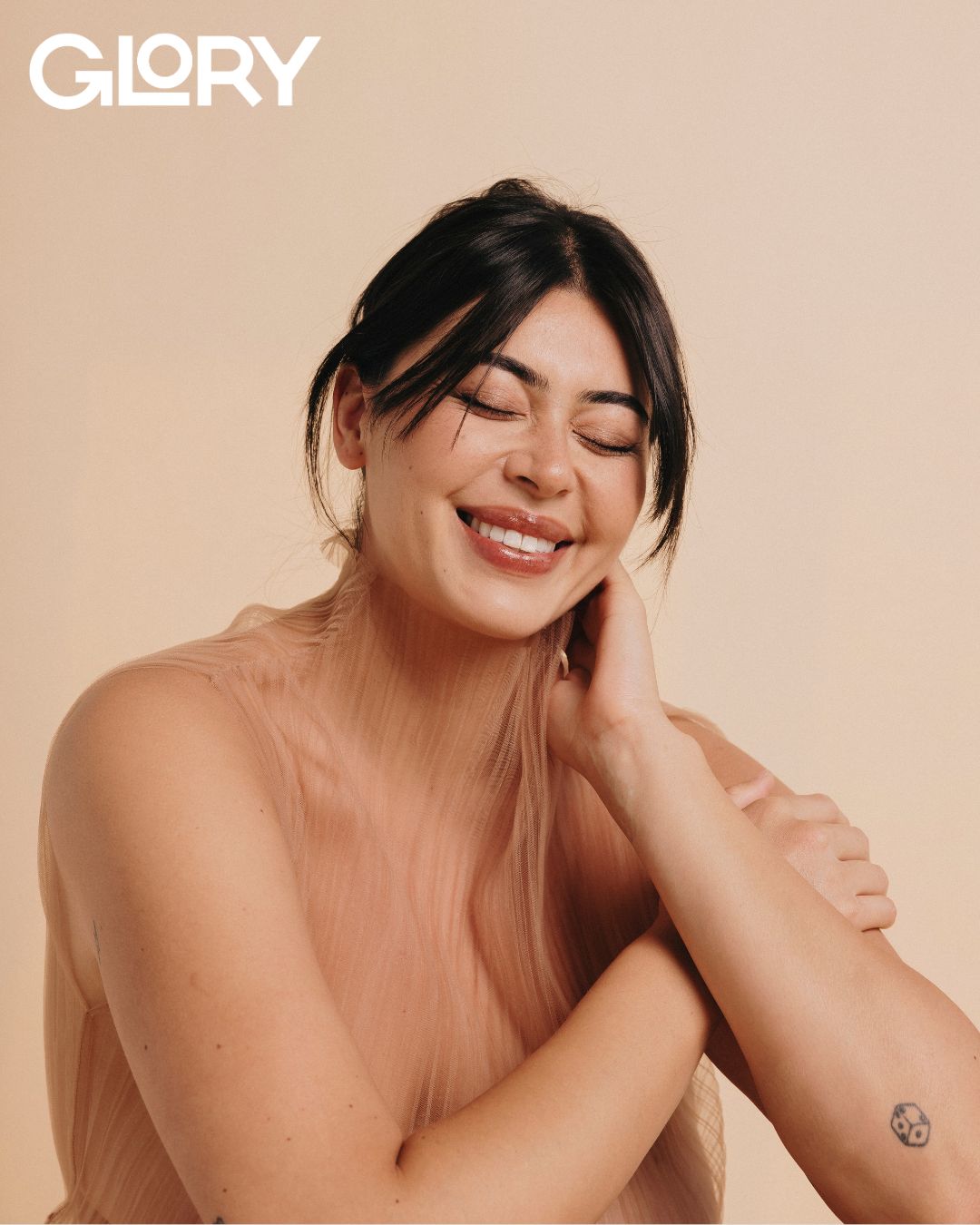

You’re a Canadian that has walked on the global runway and worked in American media. What do you think is Canada’s unique point of view on fashion?
Lauren Chan: I think that Canada’s unique point of view on anything is diversity. I’m very proud to be Canadian and very proud to be part of the Canadian fashion ecosystem, as well. I’ve been really trying to make a concerted effort to insert myself at home this year by being with some new agencies in Canada, returning to clients who I adore, and being involved with the CAFAs through the Fairmont Royal York.
Previously, you walked the runway for the Fairmont’s Grandest Night of Fashion event. Do you have any Canadian designers that you absolutely stand by and love?
Lauren Chan: Yes, definitely. I am always in awe of Tanya Taylor and what she’s been able to accomplish globally. I am really into Golshaah as an emerging player.
Speaking of Canadian brands, can you tell me a about Henning? What’s your elevator pitch to the world?
Lauren Chan: Henning’s elevator pitch to the world is that we make luxury ethical clothing for folks size 12 and up. We focus on suiting and outerwear to make you feel peak powerful.
Recently, the company got acquired by Universal Standard. Was that always part of the plan?
Lauren Chan: Yes, I am so happy that Henning was acquired because it’s the perfect home. Universal Standard is the most size-inclusive brand in the world. We make sizes zero zero to 40 and I also just have such a wonderful personal history with the co-founders of the business. It really was right and one of those moments where everything just felt like one hundred and ten percent yes. Now I’m working on partnerships there and and trying to expand the reach of the business as much as I can but it’s an incredible home and the business is profitable.
How did you manifest success for yourself?
Lauren Chan: I don’t know that I manifested it but I do think that something that helped me along the way is that I am never unkind to anybody. If I don’t agree or like you very much, or don’t think your idea is a good one, never ever will I be anything less than kind about it. I think that that kept a lot of doors open for me, whether that was being able to walk back to my old employer and have a bunch of the magazines cover my launch, or being able to sell the business to, essentially, a competitor at the end. I didn’t necessarily have a manifestation habit but I think not closing any doors and burning any bridges kept a bunch of opportunities open.
What’s your mission at the end of the day?
Lauren Chan: My mission at the end of the day is to make the world a better place through representation, conversation, product, and content for folks who have been left out and excluded like me. That used to be through the lens of size but it’s also coming through the lens of being Asian-Canadian, being part of the gay community, a female entrepreneur, and a bunch of other stuff that makes me, me.
This interview has been edited and condensed for clarity.


